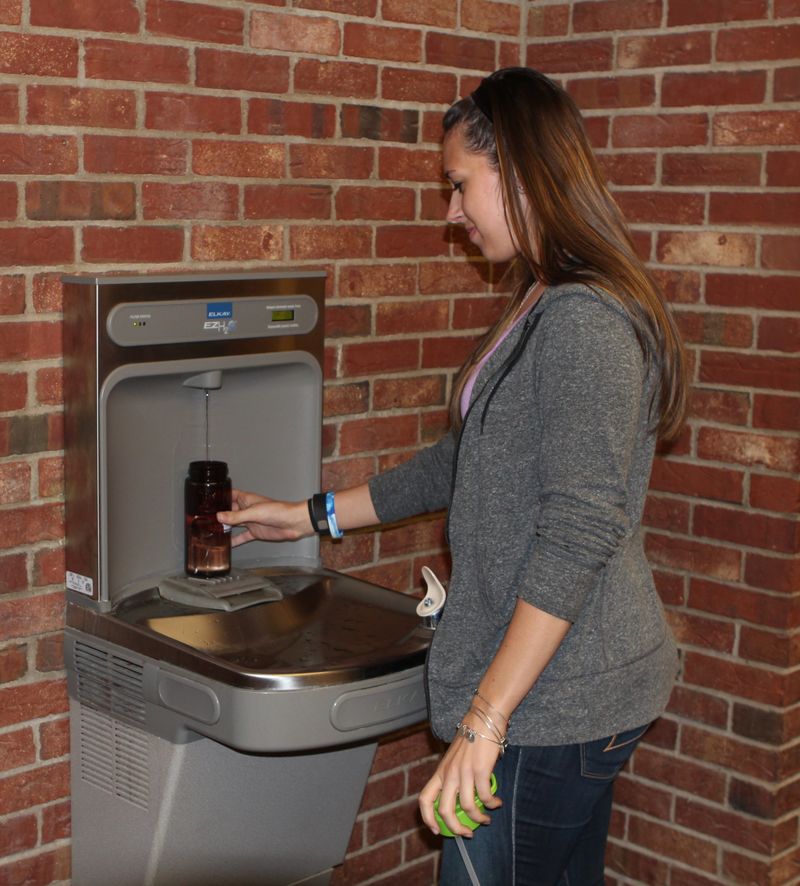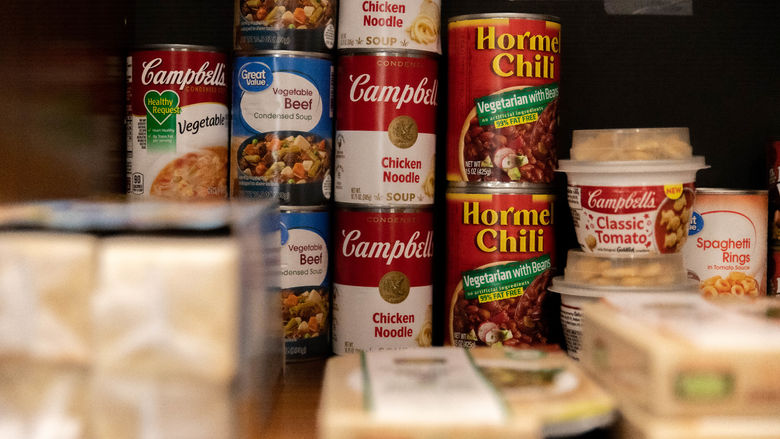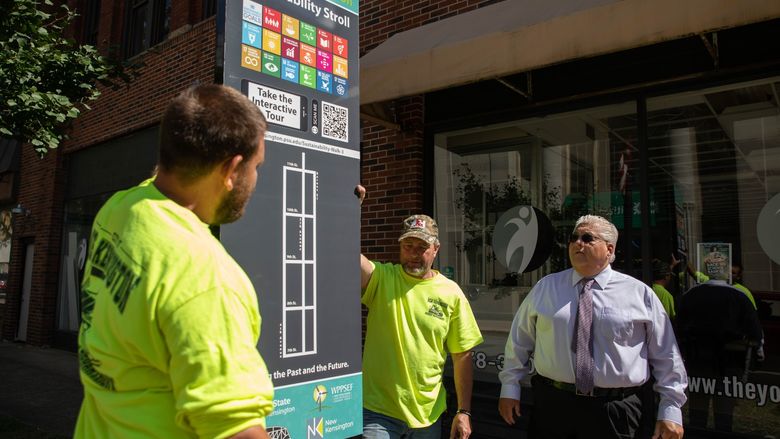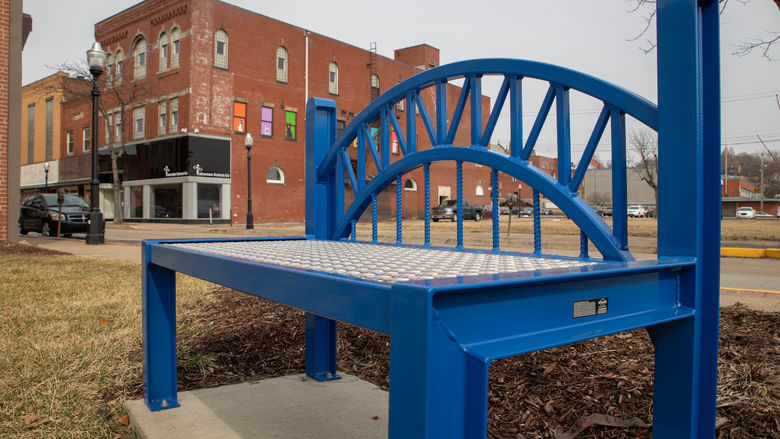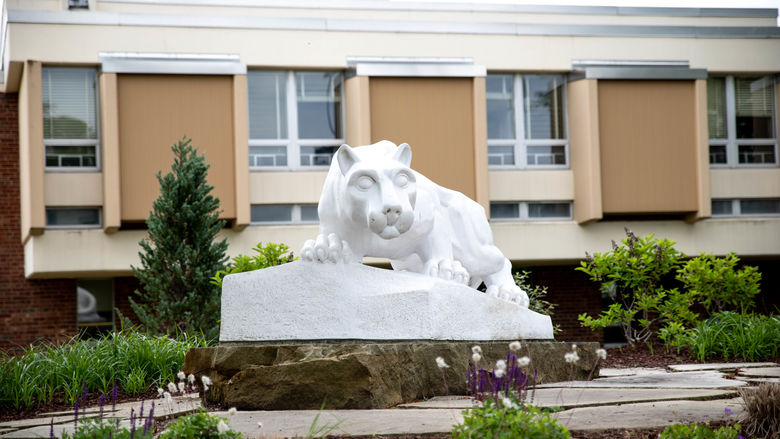UPPER BURRELL, Pa. – While one personal water filter can save about 300 plastic water bottles from adding to the waste of the United States, one Penn State New Kensington water refilling station can save more than 100,000 plastic bottles from the same demise.
Water bottle refilling stations, which are attached to the back of traditional drinking fountains, were installed five years ago as the New Kensington campus became more environmentally friendly. The station in the Administration building, which generates the most foot traffic, recently hit the 100,000 mark in bottles saved. The other two -- in the Fitness Room in the Athletics Center and in Cafe 780 in the Student Union building -- have topped 50,000, giving the campus a decrease in the use of 200,000 disposable containers that would have wound up in landfills.
Each water station includes a digital counter that displays how many 16-ounce water bottles have been filled and saved from the landfill. When a water bottle is placed under the dispenser, an electronic sensor detects the bottle and chilled, filtered water fills the container. More hydration stations will be added as other drinking fountains on campus wear out.
In addition to conserving landfill space, the hydration stations help reduce the campus' carbon footprint. According to Food and Water Watch, a nonprofit organization that advocates for safe and affordable drinking water, more than 17 million barrels of oil -- enough to fuel a million cars for a year -- are needed to produce the plastic water bottles sold annually in the United States.
The drinking fountains are a part of the campus' ongoing quest for sustainability. A number of initiatives, such as the Green Paws program and single stream recycling, are in full swing.
Supported by the Penn State Sustainability Institute, Green Paws are teams of faculty and staff volunteering to take specific actions to help their offices or departments operate in a more efficient, innovative, and healthy way. The groups work in conjunction with the institute to earn certificates of achievement for activities, such as energy savings, waste reduction and recycling. New Kensington is the only Penn State campus with 100 percent participation by its faculty and staff.
At the same time the water refilling stations were installed, "Going Green" was implemented as a fast, easy and efficient way to recycle without the hassle of sorting recycled materials. Single stream recycling allows end-users to discard plastics, paper, glass and cans into one container. Green and blue containers are located in high-traffic areas throughout the campus. Dumpsters are located behind the Athletics Center and in the lower parking lot behind the Student Union.
Sustainability is a key initiative of Chancellor Kevin Snider’s five-year strategic plan that was unveiled two years ago. It cuts across several of the strategic goals and highlights the campus’ intent to become a recognized leader in the community. Sustainability, poverty initiatives and STEM programming are the main ingredients in the campus plan, and the campus is engaging the community in these critical areas.
Penn State has been the leader in sustainability initiatives among colleges and universities. The Campus Sustainability Office, established in 2008, promotes and ensures environmentally-safe activity at Penn State. Its initiatives protect and enhance the financial, human, and ecological resources of the University and the planet.
Bill Woodard
Alumni and Public Relations Specialist
